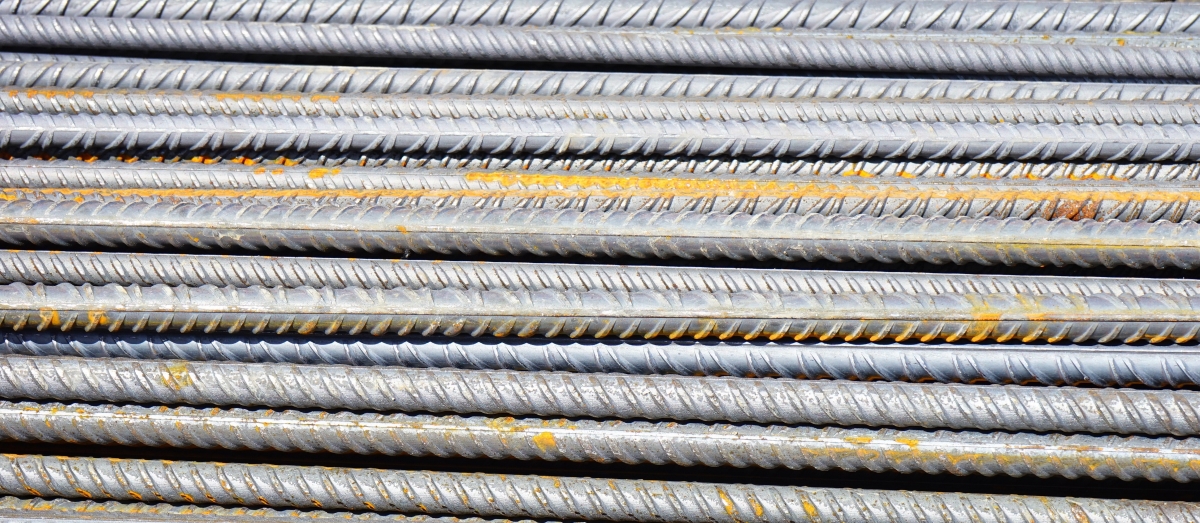A guide to careers within the steel industry and CNC jobs
In terms of raw forging, finding employment working with steel within the UK is not what it once was. With that in mind, you should remember that this is only one part of the equation, as there are many related jobs which rely on those with experience or expertise in the field of steel.

If this sounds like a new path which could appeal to you, or if you are trying to branch out within this diverse area, then this guide is designed to help. From entry-level to established professional, there are options if you know where to look.
Steel Fabricator
Following the forging of steel, it is fabricators who act as the backbone for much of the industry. Working as a fabricator, your job would be to take basic steel sections and work them into the required segments and shapes. From here, these would then be shipped off to be connected into their final greater form. Working as a steel fabricator in the modern era requires knowledge of advanced computer systems such as a Computer Numerical Control (CNC).
This is a technical job, so it can require high levels of specialisation, but it also acts as a major part of what has allowed fabricating efficiency such drastic steps forward. It is one of the largest sectors of steel working, with sub-specialisations, including the following:
Welders
This is the joining of two separate parts of metal into one strong and permanent whole. A ubiquitous part of steel working, and one which always has a call for quality manual work.
Machinists
Machinists work with either hand tools or machines to modify the steel to take a new form. These can range from large operations to modest modifications, either on the small scale or performed en masse.
Coating
Located towards the end of the fabrication process, the coating requires a modification of the surface of a steel product to fit a specific purpose. Galvanisation is a common technique here, which is applied to protect the exterior steel from corrosion born from the elements.
CNC jobs
There are a large number of CNC jobs available. CNC means Computer Numerical Control. This means a computer converts the design produced by Computer-Aided Design software (CAD), into numbers. The numbers can be considered to be the coordinates of a graph and they control the movement of the cutter. In this way, the computer controls the cutting and shaping of the material. So CNC machining is a manufacturing process in which pre-programmed computer software dictates the movement of factory tools and machinery. Popular job titles include CNC Turner, CNC Miller, CNC Programmer, CNC Machinist.
Sales Representative
If you excel more with interpersonal relationships, then acting as the sales arm for the steel industry could be the best fit for you. A sales representative in this area would require knowledge of a range of steel components and how they might best be utilised. As many cheaper parts have been shown to fail due over time to their comparative weakness, this could be a great opportunity for those interested in leading consumers to a more reliable and long-term choice in materials.
Store Person
If you have or are thinking of getting a forklift license, then working as a store person could be your way to break into the industry. Working as a store person within the steel industry would require solid time management skills, and the ability to work accurately and safely with heavy materials. This could also be a great opportunity to learn more about the different types of steel, what is used where, and which direction you could take this experience in the future.
Structural Engineer
For those with engineering degrees and an interest in taking a major part of shaping how steel is used, structural engineering could be the perfect path. This level of job is often very high paying but it also requires years of study and very in-depth knowledge of design, physics and engineering.
Structural engineers who work with steel can end up designing everything from buildings to ships, bridges, tunnels, transportation and work equipment. Those interested in this area should also note that this is a path which requires a heavy amount of cooperation with other designers, as they will commonly work as consultants to architects and design-build contractors.
As the structural engineer, your job will be ensuring a correct and solid frame or skeleton, so all other pieces can fit without issue or failure. Problem-solving skills are a must!
Workshop Supervisor
Anyone with years of experience in the field of steel could look to putting their expertise to use in guiding others as a supervisor. With many younger workers now entering the world of steel, there is a need for guidance, to ensure that standards of both quality and safety are maintained. People working as supervisors must have an interest in teaching, as in-depth understanding in this area is not something easily gained.
It is true that some of these careers require years of study, and that the career market for these jobs is not as promising as it used to be but there will always be a call for workers in the field of steel. This is also a form of work which can translate perfectly to the same industry all over the world, so those who have gone through the effort should never feel without choice or a path forward.
